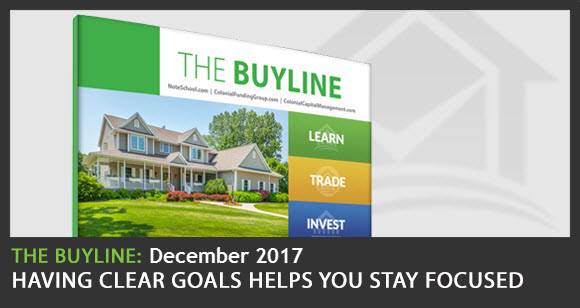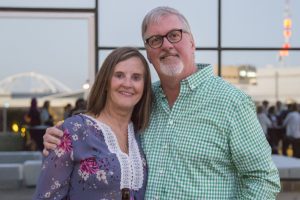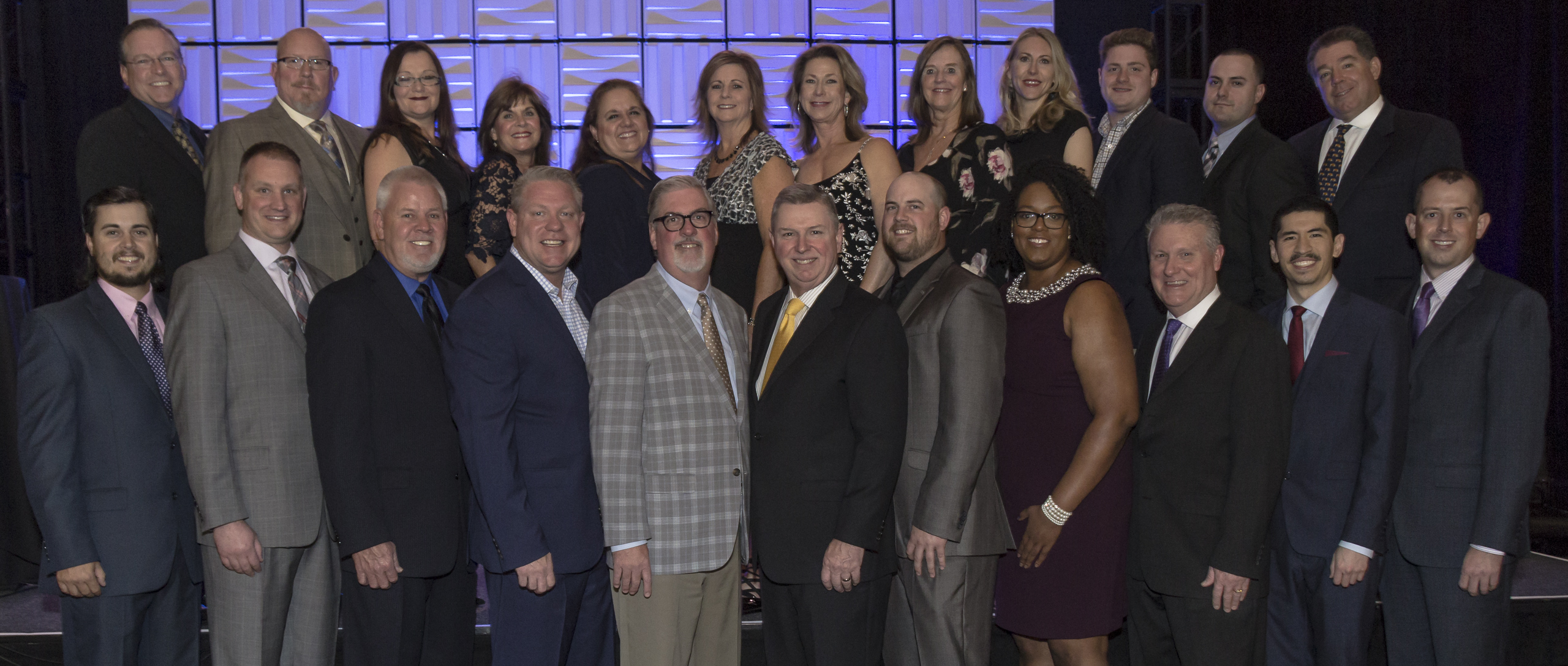
Thoughts from the Desk of Bob Repass…
The month of December is always one of our busiest of the year. I know that probably sounds like a cliché but I can say it truly is. More than any other month it seems like our time gets compressed as each day passes by. Just think – does it really feel like the 7th of the month already? Only 18 more days until Christmas, only 24 more days left in 2017!
We have three top priorities we are focused on this December:
- Each year we strive to put ourselves in a position at the end of the year to have a significant amount of capital ready to deploy. We have several counterparties that typically look to “clean up their books” before the end of the year which presents us with solid market opportunities to build our portfolio’s assets under management. Once again this year that has held true, as we have a couple hundred assets in due diligence that we are pushing to fund by year end, which this year is Friday December 29th. See our time is already compressed by 2 days with the month ending on a Sunday!
- Another goal we have is to boost our capital fund and our investor’s returns for the 4th One way we do this is through selling loans via our online trading platform www.NotesDirect.com – we actually released our December offering a week early this year in hopes to maximize our time. Our offerings our typically released on the first Thursday of each month, but this month we cheated and released them on November 30th!
- Another priority is preparing for 2018 by reviewing our 2017 results across all our business channels and establishing our 2018 budget and holding numerous strategic planning sessions to improve and drive growth across all platforms. We have meetings scheduled to focus on NoteSchool Marketing, Social Media Strategies, NotesDirect.com enhancements, and capital fund asset management and portfolio reviews. Keep in mind this advice from Herb Kelleher co-founder of Southwest Airlines “We have a strategic plan. It’s called doing things.”
I encourage each of you to take a minute and analyze where you are as you wrap up the year. Deploy any capital you are sitting on and plan for next year. Also take a minute to enjoy this holiday season with family and friends. We all have a lot for which to be thankful!
It is with that in mind, that I’d like to take this opportunity to say that my wife Angie and I wish each and every one of you a Merry Christmas and a Happy Holiday Season.
We are looking forward to a great 2018.
Bob Repass
Managing Director
Stay up to Speed with Eddie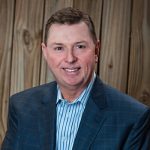
To Find the Right Money, Fish in the Right Pond
by Eddie Speed
I’ve spent a lot of years observing how some note businesses are more successful than others. Even though the person running a less successful note business is just as good at the math and the mechanics as the successful one, why does one person’s business take off while the other doesn’t?
At the latest NoteExpo I had offline conversations about this exact topic more than anything else. People were frustrated because they were making lots of note transactions but they weren’t growing their business. The problem they all had in common was that they were still doing business with the same investors they started their business with. Their investors insisted on getting double digit returns which syphoned off the profits needed to scale up their business growth.
The note business is always changing so you have to keep learning. Today’s deals are more expensive than they were 3 to 5 years ago. It’s just a market condition; you have to pay more for the same note than 3 years ago. The notes you could find a few years ago at an outrageous price are much harder to find. You have to be smarter and more selective. The price of assets today can’t give that kind of return with significant volume. The upside of this change is that it weeds out a lot of your competitors who don’t keep learning.
THERE’S EXPENSIVE MONEY AND THERE’S CHEAP MONEY.
I’ve learned the one thing that separates the highly successful from the less successful is the ability to capitalize their business with money they can afford. This is the ultimate thing that takes you from medium success to extreme success. Most people capitalize their business with private money in the marketplace; but there are two kinds of money: Expensive money (which is easy to find) and cheap money (which is not so easy to find).
To find the right kind of money, there are two kinds of ponds to fish in, with two kinds of investors to fish for: Active investors (where you get expensive money), or passive investors (where you get cheap money). Too many note people are fishing in the pond where the money is too expensive. It’s a pond where the fish are easier to catch, but they bite back.
Active investors are easy to find because they hang around real estate events and masterminds. They’ve heard war stories of people getting double-digit returns on their note deals, and they’ve heard people brag about their yield around the country club. They’re eager to get in on your deals and are expecting 12% to 20% because they’re drunk on yield. But the sobering truth is that if you’re paying all your investors 14% there won’t be much profit margin left for you to scale up your business. We all know that the stories people tend to share in public are the stories that have the happiest endings. Lots of notes don’t go the way you expect, and sometimes you have to turn a deal upside down to make it work. These less spectacular deals with less profit don’t tend to get talked about as much.
Passive investors don’t tend to hang out at real estate events, but that’s good because you can set realistic expectations on returns. As you educate them, adjust your own war stories to what you want to accomplish. Passive investors tend to be successful in other professions, and tend to have a healthy retirement fund. It takes time to gain their trust, but they’re expecting a consistent return on their investment in the 6% to 9% range which is still competitive against the stock market, mutual funds, etc. When you pay your investors a reliable single-digit percentage you’ll have enough profit margin to build your business.
I would estimate that about three fourths of people in notes try to capitalize their business by relying on active investors with high expectations on their return. It’s an easy way to raise capital but you pay too high a price. That’s why they’re struggling to grow their business.
I have contacts and relationships in all phases of real estate and notes. Sure, we talk about the mechanics of the business like titles, workout strategies, and so on. But believe it or not, about 70% of our conversations are about sourcing money. Finding affordable money is top priority if you want to grow your business.
People approach me all the time that have heard successful war stories and want to offer investment money that’s too expensive. So I ask them, “What can you bring to the table in addition to your money?” If they don’t have some kind of value-add that enables the deal to earn that kind of return, I politely pass.
If your current investors are demanding too much profit, you have to wean yourself off them and find new ones. I don’t go to real estate investor groups or trade shows thinking that’s where I’ll find my passive money. You might get lucky and stumble onto a passive investor there, but don’t hold your breath.
FIND YOUR INVESTORS BEFORE YOU FIND YOUR DEALS.
When your house catches on fire, that’s not the time to go shopping for a fire extinguisher.
To build your business you need to have investors in place and waiting in the wings, ready to invest the minute a deal comes along.
It’s a lot of work to find qualified passive investors. You can use filtering techniques and data bases to find people who have invested in properties, but that tends to turn up active investors who want higher yields. I suggest looking for successful professionals such as dentists, engineers, airline pilots, and so on. When you gain the trust of one as your entry into that professional group and prove to your investor that you can deliver reliable returns, they’re happy to introduce you to other people in their profession or social circles. It’s a slow building process, but it’s how you build your business.
It’s great to have a rich uncle. But if the success of your entire business is tied to that one rich uncle, and his availability and whims, then you’re in a dangerous position.
Having only one potential investor is never the way to build your business. You need diversity. You need a stable of six to twelve qualified investors you can call at the drop of a hat when a sweet deal pops up and you have to jump on it fast before somebody else does. The foundation of trust has to already be in place because there won’t be time to cultivate and nurture the relationship before somebody else gets the deal.
To build your stable of passive investors, you have to invest time in nurturing each one. I have to admit I learned this the hard way.
In late 80’s, I had the rug pulled out from under me in the Texas market. I lost the institutional money I had been relying on to capitalize my deals. Fortunately, I found a wealthy family in West Texas. He was a pastor but their money came when his wife inherited a mountain of money. They wanted to deploy their cash and were eager to diversify by investing in notes. (They were also the absolute nicest folks you could ever hope to meet.) The problem was that they went elk hunting every October so they were totally out of pocket. And I couldn’t bring them a deal in September because they were focused on getting ready for October. When November came along they were focused on planning for Thanksgiving, and in December they were getting ready for Christmas. That means I couldn’t count on them to invest in a deal for a full third of the year. I panicked when I had a hot deal on the hook but they would go two weeks and be completely inaccessible. I learned I needed more than one wealthy investor in my Rolodex to stabilize my business.
You can miss out on a great deal because you didn’t have an investor in place. I have! The more that happened to me the more it motivated me to have several investors in place. And it made me build a more balanced note business.
YOU DON’T PERSUADE INVESTORS – YOU NURTURE THEM.
The market opportunity over the last several years has been to use retirement account money looking for alternative investments. There are good strategies done correctly and legally where you can utilize an investor’s money from their retirement account. But before they trust you with their retirement savings, you have to be the problem solver that brings to the passive investor the confidence he will get his money plus a fair return.
I’d say the average time for an investor to fund a deal with you requires four to six months of development time. It’s more like a crockpot than a microwave. You have to continually nurture them along the way so when you need their money they’re already pre-warmed to your idea. Don’t expect to get passive money after just one conversation, or even after five. It’s a process. You have to develop a sequence of communications and follow up frequently. Remember, they’re scared of the stock market already and have probably been burned before. So be patient; trust is built slowly.
Investing your time by nurturing investors is a great investment.
Eddie
The Trading Corner:
Update on What is Going on at the CFPB
After Richard Cordray, the Consumer Financial Protection Bureau director since 2012, stepped down in Mid-November, President Trump announced the appointment of OMB director Mick Mulvaney (previous co-sponsor on the Seller Finance Enhancement Act) to become acting director of the agency on top of his duties with OMB. Subsequent to that President Trump’s announcement, then deputy director of the CFPB, Leandra English voiced her concern over the appointment.
A fight over who’s in charge of the agency played out at the agency headquarters in dueling e-mails battling for every employee’s loyalty. Mulvaney, physically in the director’s office on Tuesday, sent an email to CFPB employees instructing them to disregard any emails or directives from deputy director English. Also, English was on the hunt for advantage, making phone calls and meeting with external stakeholders.
English probed a federal judge in DC to proclaim that she is the new acting director and to ban President Trump from appointing anyone else to the director position. Obviously, the DOJ requested a temporary restraining order on English’s claim.
The legal fight involves two federal laws that seem to conflict. (1) The Federal Vacancies Reform Act gives the president authority to fill vacancies in top government posts. But (2) the statute that created the CFPB states that the deputy director “shall” become acting director when there is a vacancy in the director’s spot.
On November 27th, a DC Federal District Judge, nominated by Trump, ruled that while the deputy director normally does slide into the director’s office when there is a vacancy, the president retains the option to choose another for the position.
While the Nov. 27th ruling is a victory for the Administration and opponents of the CFPB everywhere, the buck does not stop here. That same judge will schedule a hearing in the next few weeks on the actual legal issue and the case will probably be appealed to the Circuit Level.
But for now, Mulvaney is the acting director. Trump will eventually nominate a new CFPB director in the coming weeks or months, seeking to change the path of the bureau. But for now, the outspoken opponent of the CFPB, Mulvaney, will remain in power.
In terms of affecting HR 1360, the appointment is key for the Seller Finance Coalition and the Seller Finance Enhancement Act. We should/will focus on working with Mulvaney and his staff to gain support for HR 1360. Having strong support from a two-way agency head will increase the bill’s overall support.
Join us at http://www.sellerfinancecoalition.org/join-us/
Follow us on Facebook at https://www.facebook.com/sellerfinancecoalition/
MarketPulse
Things to consider for Your Year-End Financial Checklist
by Martha Speed
The last few weeks of the year are always hectic and a mad rush to wrap up loose ends we didn’t complete during the year. With the end of 2017 fast approaching we like to share a checklist of important items to consider related to your investments and finances.
- Establish an Emergency Fund
Give yourself and your family the gift of an emergency fund to cover at least three to six months of expenses.
- Review and Balance your investment portfolio
Analyze your portfolio every year. Have you met your investment goals for 2017? Do you have underperforming assets that might offset gains? Selling underperforming assets worth less than what you bought them for will offset capital gains. If the investment is in a Traditional IRA consider converting the asset over to a Roth IRA to reduce the tax liability.
Is your money in a self-directed retirement account earning interest? Maybe you never got around to making an investment in 2017? Don’t let your investment dollars sit idle. Put your dollars to work, buy a performing note, invest in a partial with us, and get your money working for you creating cash flow before the end of the year! Self-Directed Retirement Administrators agree Real Estate Secured Notes are one of your best investments to grow your account!
- Max Out Retirement Contributions
Maximize tax advantage of 401K, 401K Solo and IRA accounts.
If you are over 50, you may qualify to contribute as much as $6,500 to an IRA based on adjusted gross income. The most generous contribution is in a 401K plan with limits up to $24,500. To make this perfectly clear, this amount doesn’t include any employer contribution, this is just how much you can choose to contribute and in most cases and the amount can be contributed as traditional or Roth contributions. This one tax break could potentially save you thousands of dollars.
The 401K Solo and SEP IRA’s allows for the highest contribution levels if you qualify as a small business owner. Check with one of our preferred Custodians to determine your annual contribution limits and options.
Opening a self-directed retirement account by December 31, 2017 counts as 1 year toward the 5 year clock for tax free withdrawals on Roth IRA accounts.
You have until April 15th to make a contribution to an IRA which can be applied to the 2017 tax year.
Required Minimum Distribution (RMD)
Don’t forget to complete forms & instruct your custodian to pay Required Minimum Distributions on or before December 31 each year. The penalty for missing a required withdrawal is 50 percent of the amount of the distribution with the exception of the first year.
Roth IRAs are not subject to the lifetime RMD rules since no distributions are required during the lifetime of the owner. However, Roth IRAs are subject to RMD rules after the death of the owner. The beneficiary must take the RMD once the original owner or account has been held for five years.
RMD is required on Traditional IRA and 401k plans when you reach age 70.5 or as allowed under the company’s 401k plan.
If you turned 70.5 during the year, you are not required to take the RMD until the next year. However, if you wait until 2018 to take your 2017 RMD plus the RMD at the end of 2018 will this put you into a higher tax bracket?
Roth Conversion?
If you expect to keep moving into a higher tax bracket think about converting your Traditional IRA to a Roth IRA or open a new account before your pay scale increases.
Remember you can move assets as they lose value from a Traditional IRA account to a Roth IRA account reducing tax due on the conversion.
Coverdell Educational Savings Account
This tax savings account can be passed down generation after generation.
2018 contribution is $2,000.
- Consider Health Care Options
Heath Savings Accounts (HSA)
You must have a high deductible health plan (HDHP) to open an HSA. The 2018 Contribution is $6,900 per household plus $1,000 catch up contribution over age 55.
Did you know you can use the money in your HSA to make investments? If you are at retirement age consider how much you will need for out-of-pocket healthcare cost after retirement. The total contributions plus profit on investments can be distributed after age 65 tax free & penalty free for current or previous documented qualified medical expenses.
You may also make a transfer from a Traditional IRA to your HSA once in a life time.
Flexible Spending Account (FSA)
Use it or Lose it. Flexible Spending is for medical expenses but must be used by year end with the exception of $500 which can be carried over to the next year. The annual 2018 contribution limit up is to $2,650. However, be sure to check into FSA Dependent Care which allows you to contribute up to $5,000, if married filing jointly, to cover preschool, summer camps, before or after school care, child and adult care for a spouse or relative who is physically or mentally incapable of self-care and lives in your home.
- Fiduciary Rule
Beginning in April, 2017 financial professionals or advisors who make recommendations and receive compensation for retirement investment advice to account holders of tax advantaged retirement plans such as 401K or IRAs must abide by a “fiduciary” standard – putting their clients’ best interest before their own profit. It’s continuing regulation like this that needs to be monitored to understand the implications it has on individual investors.
- Insurance
Review the different types of life insurance and homeowners’ coverage you have and make any necessary changes or corrections.
- Charitable Contributions
Now is a good time to donate to a cause you believe in plus the charitable donations can help you lower your tax bill. Make sure you contribute to a qualified organization and get tax receipts.
Most importantly it’s the best time of the year to give of your time, money and talent to those less fortunate than yourself.
- Update your Will & Beneficiaries & Trustees
Is your Will up to date? Have you updated your beneficiaries for life insurance and retirement accounts? Beneficiaries for retirement accounts and life insurance go directly to the recipients named, not according to the names listed in a will or trust. Be sure to list secondary beneficiaries and trustees. You want to make sure beneficiaries are the people you want to receive the money.
- Plan for Next Year
Tax and Estate planning is a strategic yearlong process, not something you can do a few days at the end of the year. Spend some time to set goals for next year and create an action plan for how you will achieve your goals.
Wishing you and your family a Joyous Holiday Season and a prosperous, peaceful & cheerful New Year!
In The Spotlight
There are a host of people behind the scenes that drive the engine to make our companies successful. As 2017 winds down, I would like to extend a very special Thank You to each and every member of our team. We are very fortunate to have a great team of employees. It is through their hard work and dedication that we have been able to have the kind of success we enjoyed this year. I am confident we have the very best people in our industry and I would like to recognize all of them this month.
Executive Team: Eddie Speed, Martha Speed, Bob Repass, Charles Mangan, Susan DeLaGarza and Ryan Parson
Executive Support Team: Debbie McMinn, Jeanna Clifford and Alec Tyler
Trade Desk Team: Angie Repass, Nathan Cheung, Scot Tyler, Tracy Rewey, and Mark Jamlech Santos
Asset Management Team: Linda Risk, Matthew Edwards and Wood Speed
Customer Fulfillment Team: Riley Goff, Jesse DeLaGarza and James DeLaGarza
Sales and Business Development Team: Duane Gibbs, Ben Haught, and Rachel Suttles
Curriculum and Liaison Team: Kevin Shortle, Joe Varnadore, Czarina Harris, Kevin Moore, Buddy Young, Susan Stuth and Melissa Newkirk
Capital Markets Update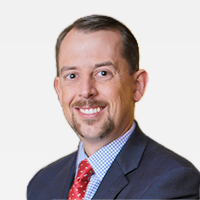
Feeling Confident in an Uncertain Market
By Ryan Parson
Creating a Defensive Portfolio in Uncertain times
The market is strong, indicators are up and business is good. But as we all know, it can turn quickly. Remember 2008? That’s why even the best of times are uncertain times, and why we need to build a defensive portfolio now. So how do we do it? How do we get past the constant distraction of dramatic financial headlines showing up on our phones every second?
Well, as successful investors, we need to stay focused first on our personal investment policy. We separate our money from the dramatic headlines. We diversify. We go outside traditional investments. We find better deals – private deals. We plan our money. And we build a portfolio that is well-defended from the roller coaster economy and stock market.
Learn how to build a defensive portfolio and money plan for yourself – and more – at our next Industry Expert Webinar. We’re certain you’ll find it worthwhile.
Creating a Defensive Portfolio
Thursday, December 7, 2017
11:00 a.m. Mountain Time
Quote of the Month
“I never lose. I either win or learn” – Nelson Mandela
This Month’s Poll Question
Connect With Us
Are you on Twitter? If so, be sure to follow us on Twitter @NoteSchool and @ColCapMgmt, if not, why not?

